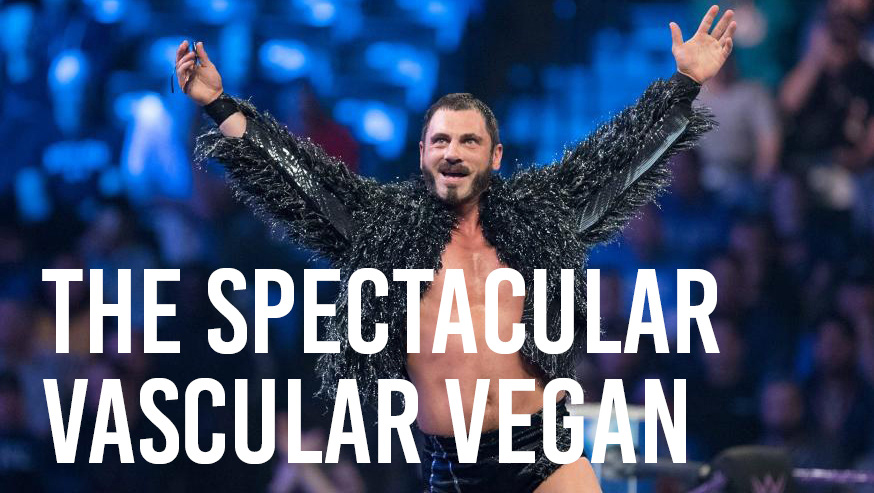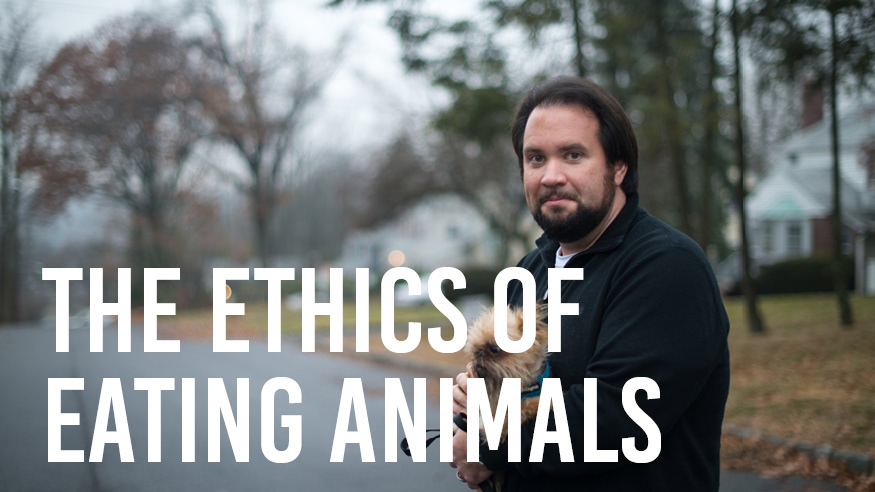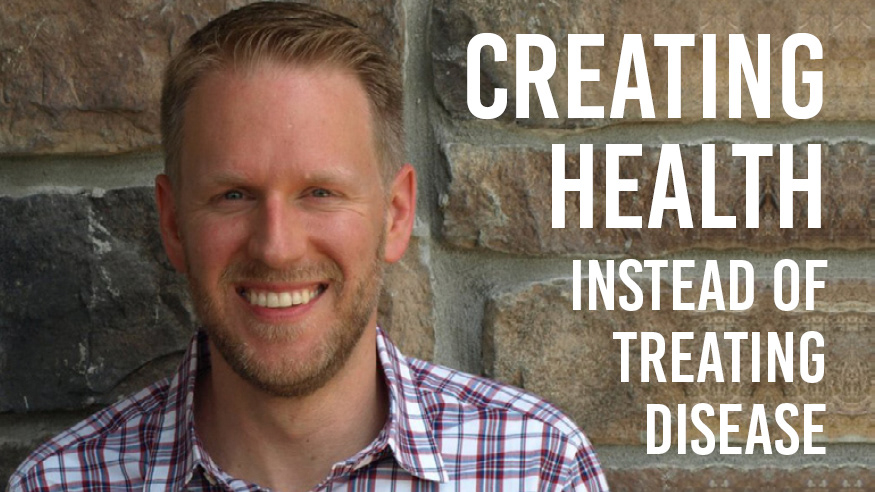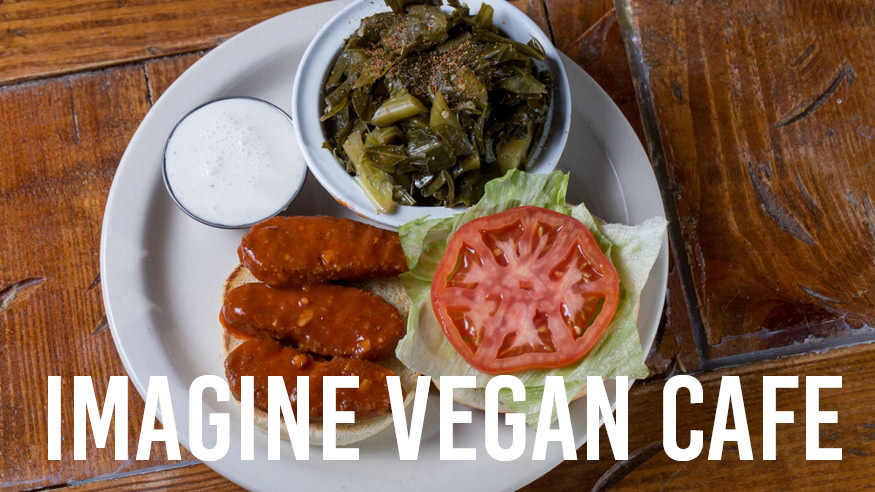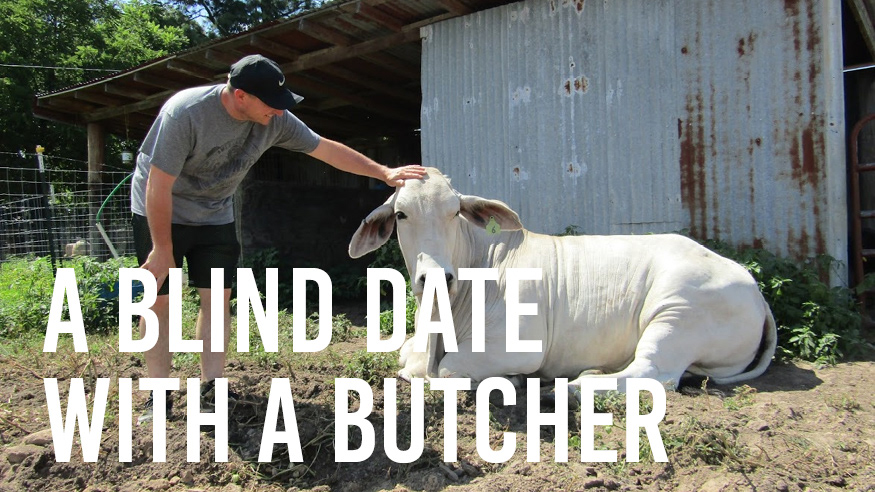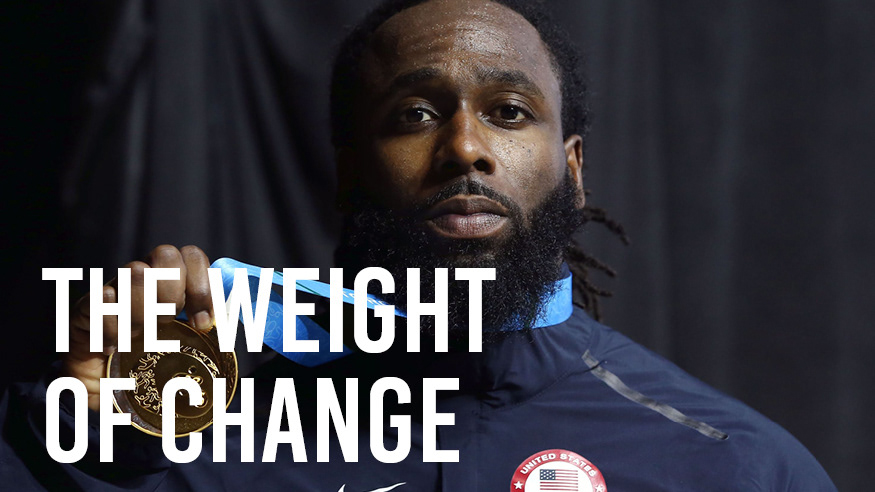How blogger Leo Babauta keeps growing one habit at a time
By Clay Garrett
For many, Leo Babauta is best known for his creation of the acclaimed website, ZenHabits.net, a Top 25 blog with over 200,000 readers according to Time Magazine. Others may best know him from his appearance in the 2015 award-winning documentary, Minimalism: A Documentary about the Important Things. But for the uninitiated, Leo Babauta is a minimalist blogger, a best-selling author, a husband, a father to six children, a former smoker, a runner, a meditator, debt-free and (as the central theme of VegWorld suggests) a vegan. But most importantly, Leo is a mindful, compassionate human being who’s made it his life’s mission to help others through their struggles by teaching–among other things–self-compassion, mindfulness and simplicity.
Recently, I had the honor of speaking to Leo on a wide range of topics, including his life before Zen Habits, minimalism, veganism, mindfulness, what he’s doing now and what keeps him motivated to help others make meaningful changes in their own lives.
Then to Zen (Habits)
Leo Babauta was born in Portland, Oregon, but his story begins in earnest on the tiny Pacific island of Guam. Leo spent most of his childhood, and until about a decade ago, his entire adult life on Guam. It was there he became the editor for his local newspaper, a freelance writer and eventually a speech writer for the governor of Guam. Guam is where he met his wife Eva and where he became a father to six children. Guam is also where Leo developed a myriad of bad habits.
By his early thirties, Leo was overweight, disorganized, deeply in debt and discontented with much of his life. He worked too much–sacrificing valuable time with his family–and despite the long work days, the Babauta family was still living paycheck to paycheck, struggling to make ends meet. Like so many of us, Leo attempted to change several of his habits time and time again, but nothing ever took hold. He had tried to quit smoking, give up junk food, exercise more, make time for writing and stop procrastinating, but every attempt would eventually fizzle out. Leo wasn’t doing meaningful work, but he needed to provide for his large family. The debt was piling up, but you can’t live without stuff, right? Leo was stuck in neutral and felt that he was simply unable to change.
The seeds of change were planted in late 2005. After several failed attempts to quit smoking, Leo made a vow to his wife and daughter that this attempt was going to be different–it was going to stick. So, Leo researched the mechanics of habit change–what worked, what didn’t. All this led him to realize just how powerful our entrenched habits are. He poured everything into his effort to quit smoking. He found accountability and a community of support in online forums and became more mindful of his triggers. He started running in order to cope with the urges and stress.
“I had accountability online. I joined a quit smoking support group and promised not to smoke a single cigarette until I posted online. Having support and accountability was really, really big.”
Armed with this new strategy, Leo was able to finally give up smoking once and for all. This success served as a template on which Leo could build further habit changes. It also allowed Leo to establish something very important...TRUST–trust that the process would work and most importantly, trust in himself. Eventually in early 2007, Leo started the blog, ZenHabits.net, to share his journey, and an entirely new adventure began
“Oh, this is called Minimalism”
ZenHabits.net has become one of the leading blogs about minimalism, but Leo didn’t start with the intention of becoming a minimalist. Rather, he started with a very basic idea–simplification. Leo’s life felt disorganized and cluttered, and the easiest way to organize both his home and his life was simply to have less stuff in both.
“Originally, I wasn’t a minimalist. I was just trying to declutter a little bit, and minimalism was really just an inquiry along the same path. I explored the question: What’s the least amount we need to be content, be healthy, work and live our lives?”
So, Leo cleaned out his closet, filed or disposed of large stacks of paperwork and decluttered his garage. He realized that neither the large amounts of debt nor the things purchased with that debt were making him happy, so he eliminated both. His children didn’t play with the mass of toys in their rooms, but the toys could bring other children joy (don’t worry, he made a game out of it...they had fun). The long work hours weren’t resulting in paid bills or making meaningful contributions to other people; so in 2008, Leo quit his job and eventually tripled his income while doing something that made a positive impact to others’ lives.
As he pruned more and more things from his life, Leo realized the joy of less vs. more, simple instead of complex and laser focus as opposed to multitasking. Leo learned that this preference for simplicity and intentionality in every aspect of life, from possession to personal relationships, is called minimalism.
Compassion Comes Calling
In 2006, Leo was 70 pounds overweight and unhealthy; his diet was full of meat, cheese, fried foods, sweets, fast food, pizza and chips. He’d tried a number of diets to lose weight and get healthy, but none felt quite right to him. So, Leo made the decision to go back to a diet he’d eaten for a six-month time span a few years earlier–vegetarianism.
Leo enjoyed exploring vegetarianism; he incorporated tons of vegetables and experimented with a wide range of cuisines. As Leo’s diet continued to evolve, he became increasingly aware of where his food came from. Even though he was decreasing the animal suffering he contributed to the world, he realized there was still much more he could be doing. Milk, eggs, cheese and butter all involved animal suffering and eventually led to animal slaughter.
“Veganism was an ethical choice–animal rights. I started reading more about it; you can't help but read about. The documentaries were really influential, too.”
The cruel ways in which animals are treated for consumer goods also began to weigh on Leo; he felt his compassion for animals should stretch beyond his diet. He found it difficult to support a system that treated animals in such an awful manner. Veganism’s ethos–not causing pain or suffering to any sentient being–deeply aligns with Leo’s Buddhist spiritual practice.
Dealing with several fits and starts, Leo slowly transitioned to a total vegan diet and lifestyle over the next few years. A visit from a couple of passionate vegan friends further inspired Leo and his wife, Eva, by showing how a vegan diet can be both tasty and easy. Later on a trip to New York City, Leo and Eva spend the entire time in the Big Apple (apple...vegan...get it?) eating a strictly vegan diet, with ease. Leo believes that going fully vegan is easier than most people think because there is so much incredible vegan food that animal products won’t be missed. Leo went vegan in October 2012, and has no plans to return to his previous diet and lifestyle. In the end, it was a simple decision to support compassion over suffering.
Running Beats Smoking
Once a relatively successful runner (the second best high school runner on Guam), Leo returned to running to combat the stress once pacified by his smoking habit. Starting out, Leo struggled with a 10-minute jog, but little by little, he rebuilt his running habit. Soon, he was running a half mile, then his first 5K. A year later, Leo ran his first marathon. While training for the marathon, Leo wrote a bi-weekly newspaper column about his training. This technique of holding himself accountable through others was something he found successful in other habit changes, but this time the entire island of Guam was rooting for their ‘Marathon Man.’ That’s accountability!
Since then, Leo has gone on to run many other marathons, including a 50-mile ultramarathon in December 2013, and several other strength and endurance challenges. He’s also developed a regular yoga practice and recently began strength training.
Just Breathe and Watch
Increasingly, Leo’s blog has focused on mindfulness and meditation as central themes. Originally, Leo began meditating as a stress relief technique during his bid to quit smoking. Staying mindful of his urges was key. Urges would arise and fade away. In the end, Leo was fine; they were just urges. He observed the rationalizations and negative thoughts racing through his consciousness. He breathed in. He breathed out. Thoughts materialized and thoughts evaporated. It was this exploration that would lead Leo to what he feels is the most important habit he’s developed over the last ten years–meditation.
“We make up these stories in our minds that hurt us as meditators. What if there was no way to do it wrong? What if that story is completely false? What if it’s all perfect?”
Meditation allows Leo to simply observe his own mind instead of being ruled by it. He can decide which thoughts to act on. Meditation has provided greater self-compassion and an appreciation for all parts of life. Now, Leo brings his meditation practice to all aspects of his daily life. Everything is meditation practice.
Now and Zen
Currently, Leo is developing his Fearless Training Program online course. Leo sees this as his most meaningful work and his deepest mission. The aim of this course is to transform habitual patterns surrounding uncertainty, stress, busyness and distractions from fear to joy. Leo’s program helps users pursue their mission by developing greater focus, peace and passion.
“We’re not trying to get rid of fear. It’s going to come up. Instead, we open ourselves up to being in the middle of fear–to be present. Fearlessness is courageousness.”
Finally, I asked Leo if the younger version of himself would have thought any of this was possible, and I got a quick, “No way!” in return. Leo has become a different, better person over the last 14 years. He believes we’re all slightly different people every day– every conversation, experience and commitment alters you. Everything you read, learn about your inner self and learn about the world changes you. Becoming vegan changed Leo. Change is going to happen; some, like Leo, are intentionally changing instead of allowing their lives and the world to unintentionally change them.
“What can you explore today? What can you be curious about? What is something you can try that you didn’t think you could do? Break out of your self-made prison and be freer than you ever were before. I think that is the most important thing you can do for yourself.”
Leo’s two most important habit change tips:
Meditation – it gives you the ability to see “you,” the ability to recognize your triggers, and allows you to be present with urges, thoughts and fears.
Creating the right environment – this will hold you to your intention as you move through the uncertainty of everyday living, i.e., accountability.
Meditation Book recommendation:
Zen Mind, Beginner's Mind: Informal Talks on Zen Meditation and Practice by Shunryu Suzuki
When Things Fall Apart: Heart Advice for Difficult Times by Pema Chodron
What Is Zen?: Plain Talk for a Beginner's Mind by Norman Fischer, Susan Moon
The Sacred Path: The Way of the Spiritual Warrior by Stephen J. Johnson
Mindfulness in Plain English by Bhante Henepola Gunaratana
Links:
zenhabits.net
leobabauta.com
twitter.com/zen_habits
zenhabits.net/books
patreon.com/zenhabits
Published in VEGWORLD Magazine on January 1, 2019. VEGWORLDMag.com
